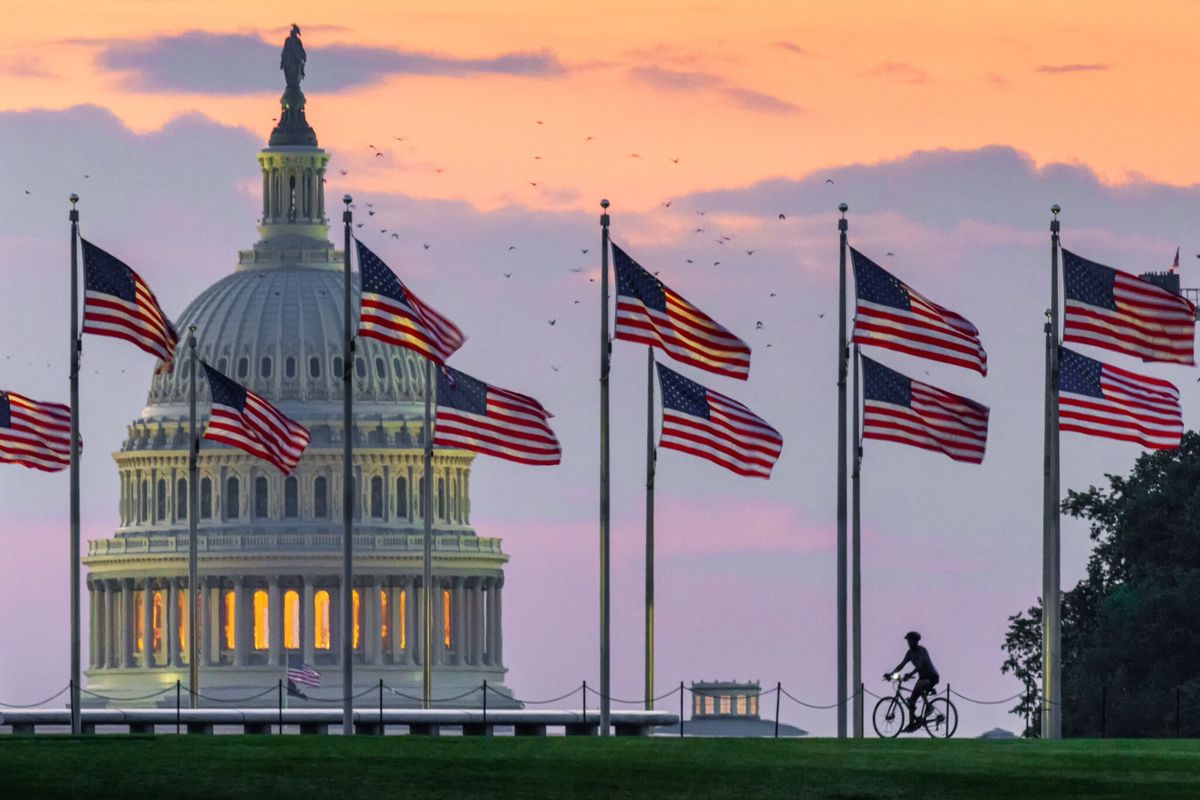While the origins of the phrase may be traced back to Turkey, Pakistan’s Inter-Services Intelligence Directorate (ISI) today represents the defining example of a “deep state.”
Historically responsible for coups, assassinations, domestic political manipulation, covert action, media suppression, torture, and “disappearances” across the country – particularly in Pakistan’s insurgency prone Baluchistan province and the Federally Administered Tribal Areas – the ISI, has developed from a military intelligence organization focused solely on India into a mythological force of nature in Pakistan and its near beyond. In reality, however, the ISI presents much more of an enigma: although it is afforded significant power and authority, the reach and strength of the ISI isn't always what it appears.
The ISI as a military organization primarily took shape out of the ashes of lost wars against India in the 1940s and 1960s, but also as a political force through the decades dating back to General Ayub Khan’s coup in Pakistan in 1958. Originally conceived by Pakistan’s military leadership, including Australian Major General Sir Walter Joseph Cawthorn, as a surveillance tool and a purely military intelligence organization (“inter-services” literally meaning coordination of the intel services of the three military services), over the years the ISI’s portfolio has been more of a domestic political tool for those in power.
The organization does much more than just collect foreign intelligence. ISI’s role over time has included brutal suppression of anti-state rhetoric, fomenting and countering insurgency, providing illicit channels for drug smuggling, acquiring nuclear weapons components, and developing proxy organizations to splinter domestic opposition political parties. The organization has become an integral component for those wielding power - both for civilians and for those leaders still in khakis.
ISI’s overall directive is to protect Pakistan’s national security. It is tasked with collecting foreign and domestic intelligence and conducting covert offensive operations. ISI de jure resides under the direction of Pakistan’s Prime Minister, but in reality, it is part of the military and answers to the Chief of Army Staff. Historically, whenever an elected civilian has been in power in Pakistan, the Chief of Army Staff ensured that the elected Prime Minister did not develop control over ISI. If the ISI showed loyalty to the civilian government, the Chief of Army Staff would move to marginalize it.
In today’s Pakistan, ISI is used not just to protect the state, but also to ensure that the army maintains its grip on authority. While in 2012 it was announced that the ISI had disbanded its political cell, it is still widely seen as active in surveillance, influence, and manipulation of domestic politics.
When considering the role and mission of the ISI, it must also be made abundantly clear that Pakistani generals view national security from a radically different vantage point than, say, someone from the United States. ISI is tasked with engaging in all of the actions listed above to maintain the nation’s security: threats, perceived or real, drive Pakistan’s leaders to direct actions that enable them to simultaneously maintain their grip on power and protect the nation’s security. Such a strategy includes developing, maintaining, and deploying militant organizations, both internally and externally, and has birthed groups such as the Afghan Taliban, the Haqqani network, Lashkar-e-Tayyiba (LeT), Jaish-e-Mohammed (JeM), and Lashkar-e-Jhangvi.
The primary argument made by Pakistani generals is that due to historic and growing disparities with India in the conventional military balance, these proxy groups are essential for keeping India off-balance, as well as for ensuring that Afghanistan does not become a Western-aligned and India-dominated neighbor encircling the Pakistanis. Since the democratic election of Nawaz Sharif in 2013, the Pakistani government has consistently argued that it has done away with the practice of nurturing and supporting these types of organizations, but it’s simply not true. And while the case may be that the civilian leadership is not fully aware of the activities of the senior military leadership, the fact is, this operational mindset and behavior is a historical practice dating back literally to the inception of Pakistan.
With the exception of military operations against insurgents such as Tehrik-e-Taliban Pakistan (TTP), who openly oppose Islamabad, little justifies the civilian government’s stated positions in face of the reality on the ground: the leadership of the Afghan Taliban continues to operate freely in Quetta and Peshawar; the Haqqanis roam freely in Miramshah and are even spotted in Rawalpindi; Masood Azhar - the head of JeM - calls into large rallies from his Bahawalpur home, clamoring for state-sponsored jihad, and Hafiz Saeed - the head of Lashkar-e-Tayyiba - remains merely in “preventive detention,” or house arrest.
Despite its almost mythological reputation and ongoing pivotal role in fomenting insurgencies and manipulating domestic politics, the ISI remains an enigma. It represents one of the most passionate guardians of the Pakistani state, exuding a sense of sincerity and honor - while at the same time remain coldly ruthless behind the scenes, to the point of silently condoning attacks on U.S. soldiers by its proxy forces in Afghanistan.
Moreover, its grip on the organizations it has created is not as strong as it would lead everyone to believe. The Afghan Taliban, for example, maintain their leadership safe havens in Pakistan, but by no means do the Taliban answer fully to the ISI or the Pakistani generals in Rawalpindi. ISI may attend Taliban shura meetings and influence their decisions and behavior, but only up to a certain point. It remains abundantly clear that the Afghan Taliban look forward to the day when they are out from under the yoke of their ISI minders.
While the Afghan Taliban continue to thrive due to both active and passive support from the ISI, an example of the ISI’s relative weakness can be found in the political reconciliation efforts in Afghanistan. Even the ISI has been unable to effectively push its Taliban clients to the table, despite having apparently played a significant role in the reordering of the Taliban senior leadership following the death of Taliban leader Mullah Mansour in 2016. However, the ISI’s lack of success could perhaps be partially attributed to a lack of will power, since the Taliban continue to feel emboldened on the battlefield in Afghanistan, which is to Pakistan’s perceived advantage.
Lashkar-e-Tayyiba provides another example. Its senior leadership appears to heed marching orders from ISI, standing down after the Mumbai attacks in 2008, but there have been multiple instances of its operatives acting outside of ISI control or direction. Concern exists as well that rogue elements within ISI facilitate its activities, breaking from the orders of ISI superiors.
Other groups, including sectarian groups developed originally for domestic political purposes, have assumed such intrinsic importance in Pakistani society that the ISI can no longer claim control. The mythology – that the ISI can be both powerful and effective — doesn't always match the reality. The organization has played a significant role in the development of the Pakistani state as well as with Pakistan’s military endeavors in the near abroad, and it remain a favorite instrument of control at home - but its influence is often greatly exaggerated.
The enigmatic nature of the ISI is also clearly illustrated in its longstanding relationship with the United States. American intelligence services have intermittently worked closely with ISI for decades. Pakistan allowed the basing of U-2 operations out of Peshawar during the Cold War; the NSA collaborated with the Zia-ul-Haq administration in the late 1970s; infamously the ISI and CIA worked together to funnel training and arms to the mujahideen during the jihad against the Soviets. Since the attacks of September 11, 2001, the CIA and ISI have quietly worked together against al Qaeda. However, today, while counterterrorism cooperation goes on between the two countries - and in many instances, counterterrorism cooperation with Pakistan continues to crowd out other critical U.S. national security policy priorities - it is halting at best.
Since 9/11, the ISI has assisted in taking down a number of al Qaeda senior leaders, but it has done so while at the same time allowing safe passage for other terrorists, permitting India-focused terror groups to remain active, and ensuring that the Afghan Taliban could regroup and become a more effective and equipped fighting force than ever before.
The United States has found Pakistan to be a partner and an adversary at the same time. Pakistan’s double game is clearly illustrated by the ISI and its role. To date, collaboration between the U.S. and Pakistan has clearly contributed to the prevention of attacks on the U.S. homeland, but, due to an inherent lack of trust, much of the recent success has been due to U.S. unilateral action, whereas the Pakistan military is informed only at the precise moment of an operation. This success against al Qaeda’s core leadership has also come at an extremely high cost, with the overall war in Afghanistan grinding into a stalemate that has killed and injured untold numbers of civilians and soldiers on both sides of the Durand Line, in large part due to Pakistan’s active and passive support. While even Pakistan’s de minimus counterterrorism collaboration is in many ways irreplaceable, it remains dramatically insufficient.
In the end, enigmatic is one way to characterize Pakistan’s deep state; another is simply Janus-faced. ISI leaders, however, see this as necessary since they do not trust the United States. As noted above, Pakistan’s generals see the world through a very different lens. The generals intend to do everything within their power for the security of Pakistan.
ISI remains an essential tool in Pakistan’s efforts to defend against what it sees as existential threats to the nation regardless of the problems posed by a true deep state. The fact remains that no one else can help the United States hunt down international terrorists who are based in Pakistan and focused on conducting 9/11 style attacks against the American homeland, presenting a conundrum with very few, if any, clear answers.













